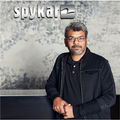Interviews
PTRI opens for non-fabric materials testing
15 Apr '10
3 min read
Non-textile materials can also be tested with instruments used by laboratories at the state-run Philippine Textile Research Institute (PTRI).
Testing services at PTRI go beyond evaluating the level of quality of yarns, fibers, fabrics, auxiliaries, chemicals and dyestuffs used in textile production. Analyzing the color difference in tooth samples before and after application of bleaching aids and determining the strength of porcine ligament are just some of the non-textile testing jobs PTRI has done so far.
An orthopedic student working on a biomedical study availed himself of the Institute's testing service to determine the strength of some porcine ligament samples he needed for non-implant technique for ligament reconstruction. Researchers at PTRI's physical testing laboratory used a universal testing machine for this. The machine tests a wide range of materials in tension or compression. In testing the ligaments, each sample was secured between a rigid frame base and a moving crosshead where tensile or compressive load was applied to the specimen. A load cell, a transducer that converts force into a measurable electrical output, mounted between the specimen and the crosshead measures the applied load. This machine's load cell is interchangeable with other load cells of different capacities to measure a range of weight. The machine comes with a material testing software program running on a personal computer connected to the system that controls the testing. Test parameters, setup information, results, and statistics reported are all selected from within the program.
Similarly, a group of dentistry students visited PTRI to ask for assistance in reading and analyzing the color differences in tooth samples, before and after treatment with bleaching solutions, by using the Institute's color spectrophotometer. This equipment, according to the researchers, measures, specifies, and evaluates color quality in both laboratory and production settings. Pulsed xenon light source, multiple aperture sizes to accommodate samples of different sizes, and automated specular port are the standard features of the equipment. PTRI's color spectrophotometer can also determine the whiteness and yellowness index of a specimen.
Equipped with newly acquired instruments for testing the chemical and physical properties of textiles and other materials, PTRI has diversified its services to accommodate the testing requirements of student researchers through the open laboratory policy. The Department of Science and Technology (DOST), mother agency of PTRI, established the open laboratory policy to develop and implement programs for strengthening scientific and technological capabilities through manpower training, infrastructure, and institution building. The policy covers the use of research, processing, testing, and analytical equipment and facilities of PTRI by high school up to graduate students pursuing research works in fulfilling academic requirements. Operating any equipment is done under the supervision of PTRI laboratory staff. Dr. Carlos C. Tomboc, PTRI director, said that students are entitled to a 20-percent discount on all service fees.
Testing services at PTRI go beyond evaluating the level of quality of yarns, fibers, fabrics, auxiliaries, chemicals and dyestuffs used in textile production. Analyzing the color difference in tooth samples before and after application of bleaching aids and determining the strength of porcine ligament are just some of the non-textile testing jobs PTRI has done so far.
An orthopedic student working on a biomedical study availed himself of the Institute's testing service to determine the strength of some porcine ligament samples he needed for non-implant technique for ligament reconstruction. Researchers at PTRI's physical testing laboratory used a universal testing machine for this. The machine tests a wide range of materials in tension or compression. In testing the ligaments, each sample was secured between a rigid frame base and a moving crosshead where tensile or compressive load was applied to the specimen. A load cell, a transducer that converts force into a measurable electrical output, mounted between the specimen and the crosshead measures the applied load. This machine's load cell is interchangeable with other load cells of different capacities to measure a range of weight. The machine comes with a material testing software program running on a personal computer connected to the system that controls the testing. Test parameters, setup information, results, and statistics reported are all selected from within the program.
Similarly, a group of dentistry students visited PTRI to ask for assistance in reading and analyzing the color differences in tooth samples, before and after treatment with bleaching solutions, by using the Institute's color spectrophotometer. This equipment, according to the researchers, measures, specifies, and evaluates color quality in both laboratory and production settings. Pulsed xenon light source, multiple aperture sizes to accommodate samples of different sizes, and automated specular port are the standard features of the equipment. PTRI's color spectrophotometer can also determine the whiteness and yellowness index of a specimen.
Equipped with newly acquired instruments for testing the chemical and physical properties of textiles and other materials, PTRI has diversified its services to accommodate the testing requirements of student researchers through the open laboratory policy. The Department of Science and Technology (DOST), mother agency of PTRI, established the open laboratory policy to develop and implement programs for strengthening scientific and technological capabilities through manpower training, infrastructure, and institution building. The policy covers the use of research, processing, testing, and analytical equipment and facilities of PTRI by high school up to graduate students pursuing research works in fulfilling academic requirements. Operating any equipment is done under the supervision of PTRI laboratory staff. Dr. Carlos C. Tomboc, PTRI director, said that students are entitled to a 20-percent discount on all service fees.
Popular News
Leave your Comments
Therese Premler-Andersson
Textile Machinery Association of Sweden (TMAS)
Salvatore Piccione
Label - Salvatore Piccione
































-Ltd..jpg?tr=w-120,h-60,c-at_max,cm-pad_resize,bg-ffffff)





.jpg?tr=w-120,h-60,c-at_max,cm-pad_resize,bg-ffffff)
.jpg?tr=w-120,h-60,c-at_max,cm-pad_resize,bg-ffffff)






